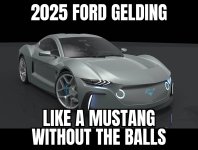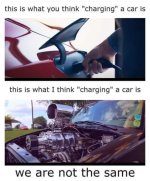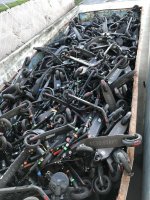Raping the earth is what we are good at. Car batteries are a small part of the Li we need. Batteries, laptops, cameras, heart pacemakers, toys , clocks, and other things like industrial uses. You anti EVers know not what you say.
You can't rape the Earth no matter how hard you try to fuck it, Sybil.
Almost all the lithium mined today goes to making batteries for EVs. A small amount is used to product batteries for computers, phones, game consoles, etc.
Lithium is mined in one of two ways:
1) Open pit mining, in which lithium is obtained from rock and crushed into ore. Open pit mining is common for many materials, including buaxite for aluminum, coal, iron, copper, etc.
2) Leach mining. Lithium typically is left over from shallow seas that have evaporated away producing desert areas. This type of mining requires large amounts of water (hard to obtain in the desert) and the use of large amounts of sulfuric acid (left as a waste product after processing). This type of mining takes several years for the leach process to produce usable ore.
This ore must then be shipped across the Pacific ocean in large ships to be processed into batteries in China. The batteries are then shipped to car manufacturers (another trip across the Pacific ocean).
Leach mining presents the most problems, since it requires large amounts of a scarce resource in the area and leaves behind sulfuric acid and their salts as waste material, and takes years to produce usable ore.
Cobalt is another problem, also required to manufacture these batteries.
While cobalt (usually in the form of cobalite (cobalt-arsenic sulfide) can be found in several places, the only supply large enough to supply the needs of the car batteries is a mine in the Congo, which uses child slavery for the mining. The ore is crushed and processed to obtain the cobalt needed (leaving behind water contaminated with arsenic and sulfur as a waste product).
Various rare earths are also used, but are of course also expensive.
The EV is a VERY expensive car. Governments (including the US government) provide heavy subsidies just to bring the price of an EV down to about three times the cost of a gasoline car. It's poor range (about 250-300 mi in ideal conditions), it's weight, and of course the inconvenience of requiring hours to charge the thing, has caused the EV market to collapse, despite the subsidies.






